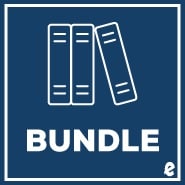Quick Access: Reference for Writers provides down-to-earth writing advice, cutting edge research information, and trusted, class-tested, grammar instruction to help students succeed in their composition courses, in other classes, and beyond.
0133892808 / 9780133892802 Quick Access Reference for Writers with MyWritingLab with eText -- Access Card Package
Package consists of:
0205870147 / 9780205870141 MyWritingLab with Pearson eText -- Valuepack Access Card
0205903614 / 9780205903610 Quick Access Reference for Writers








